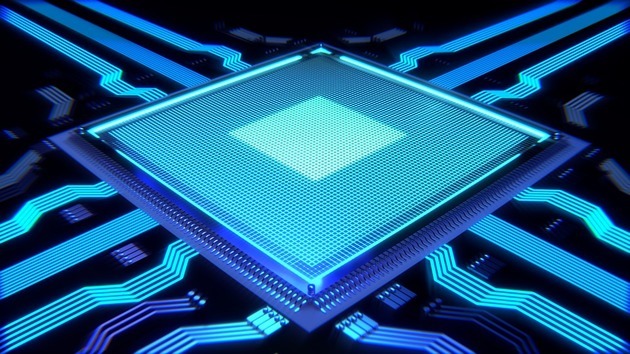Top chipmakers in Taiwan and South Korea are closely reviewing their stockpiles of critical industrial gases after Russia's special military operation in Ukraine sparked fears of supply disruption that could exacerbate a global chip shortage.
Japanese Nikkei Asia writes that Taiwan Semiconductor Manufacturing Co. (the world's largest) and United Microelectronics Corp. (fourth-largest) contract chipmakers spoke with key gas suppliers on Thursday to make sure supplies would continue to be available, according to multiple sources familiar with the matter. The discussions were held shortly after Russia launched a operation in Ukraine.
TSMC and UMC regularly conduct risk assessments of all critical materials and are careful to always have up to a year's supply of the most important gases like neon and argon on hand or secured through contracts, the people said. The companies have also been looking for alternative sources of such gases since the pandemic to ensure production continuity. Powerchip Semiconductor Manufacturing, another key chipmaker, told Nikkei Asia that its in-house stocks and contracts with suppliers guarantee that the company has at least six months' worth of those critical gases.
TSMC supplies almost all the leading global chip developers, including Apple, Google, Qualcomm and Nvidia, while UMC supplies to Samsung, Qualcomm and many others. Powerchip's customers include NXP, Omnivision and Renesas Electronics.
Ukraine and Russia are important sources of noble gases and precious metals used in chipmaking. These include neon, argon, xenon and krypton from the former, and hexafluorobutadiene (C4F6) and palladium from the latter. Ukraine, for example, controls 70% of the world's supply of neon, according to research company TrendForce.
Neon is used in lithography, a crucial step in the chip production process, while argon is used in etching, another important step for manufacturing any type of chip, according to industry executives.
South Korea's SK Hynix, the world's second-biggest memory chipmaker, has said it has sufficient supplies of neon, with CEO Lee Seok-hee noting last week that there was "no need to worry about this too much because we have prepared for this well in advance." Nevertheless, the company plans to diversify its sourcing in light of the Ukraine-Russia conflict, a source with knowledge of the matter said.
UMC's Chief Financial Officer Liu Chi-tung told Nikkei Asia the chipmaker had increased inventories of critical chipmaking materials since the start of the pandemic, and had long been seeking additional suppliers. UMC would closely monitor the situation in Ukraine and maintain close communications with suppliers, he added.
TSMC told Nikkei Asia it had no comment at the moment.
The Ukraine crisis comes as the semiconductor industry has already endured more than a year of unprecedented chip and component shortages. Companies have also suffered from higher costs of materials and lengthy delivery times for equipment and materials due to the component crunch, labor shortages and logistics congestions caused or exacerbated by the coronavirus pandemic.
Dylan Patel, chief analyst with Semianalysis, told Nikkei Asia that most chipmakers already kept high levels of neon on hand due to the previous shock of likely Russia-Ukraine tensions in 2014. Suppliers have also developed ways to use recycled neon, he said.
"The risk is still there with a prolonged conflict, but assuming the actual facilities are not damaged or if they are damaged, it isn't long term. There will not be a major neon shortage," Patel said.
A handful of gas suppliers, such as Air Products and Linde of the U.S. and Air Liquide of France, buys inert gases, purifies and liquefies them, then supplies them to global chipmakers like Intel, TSMC and Samsung, as well as smaller players.
"The scale of the impact will depend on how long this war lasts," said an executive at a chip production equipment maker that supplies a wide range of global chipmakers. "Big chipmakers like TSMC usually have higher levels of inventory to support production continuity, but for mid- to small-size chipmakers with fewer resources, they would start to feel the tightness of supply over the course of time."
For the longer term, Su Tzu-yun, director of the Institute for National Defense Security Research, said countries like the U.S. have already recognized the need to find alternative sources of rare earth and precious metals due to geopolitical risks. Japan is also aware of the need to reduce its reliance on rare earth metals from China after Beijing cut off its supplies in 2010.
"More countries now understand the importance of gaining more control of the supply chain, and so do the suppliers who are getting more cautious on the possible disruptions from either COVID or geopolitical uncertainties," Su said. "It is a shift of mindset compared with in the past."
Stephen Su, vice president of the Industrial Technology Research Institute, said there may be other indirect impacts on the supply chain as well: "We also cannot rule out the potential indirect impact the demand side and also the supply side on the scale of the military disruptions. On the supply side, we are not yet certain whether there are consequences if key gasses or metal supplies are disrupted and whether that could lead to any chain reactions. On the demand side, Europe is such a large market, not only for chipmakers but also for electronics products. We are not yet sure whether the military conflicts on the European continent could affect consumers' end-demand and sequentially affect the semiconductor industry and global macroeconomic outlook."






